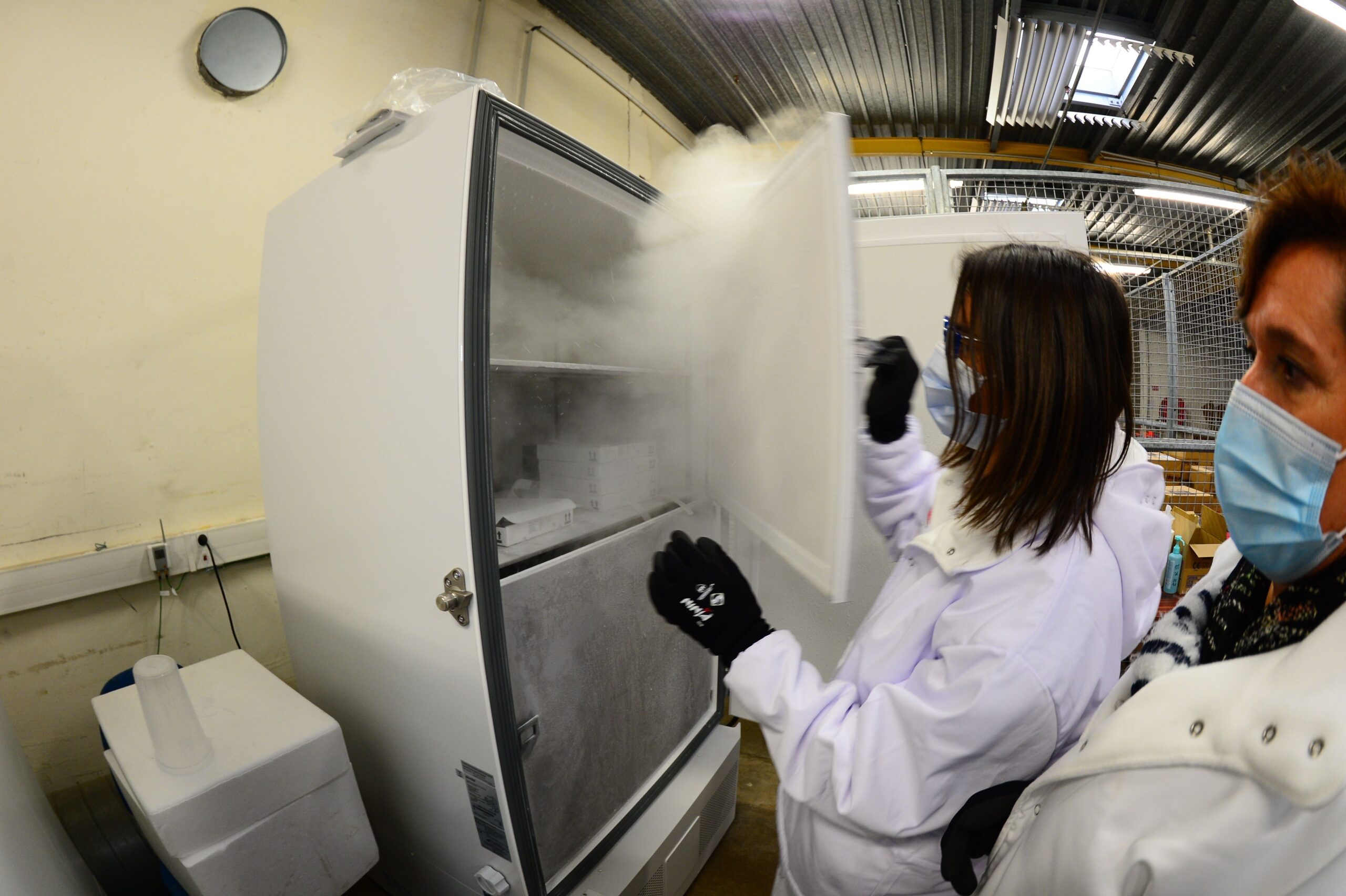[ad_1]

A pharmacist opens a freezer to prepare doses of Pfizer/BioNTech Comirnaty COVID-19 vaccine on January 8, 2021 in an undisclosed warehouse of the Bordeaux CHU hospital before being distributed in different vaccination centers of the area. MEHDI FEDOUACH/AFP via Getty Images
Pfizer and BioNTech have submitted new data to the FDA demonstrating that their COVID-19 vaccine can be stored at normal refrigerator temperatures, rather than deep freezing conditions, for up to two weeks, a breakthrough discovery that could significantly ease the logistics of vaccine rollout.
In an announcement Friday morning, Pfizer said stability data generated on vials manufactured over the past nine months showed that the vaccine can be stored at -25°C to -15°C (-13°F to 5°F), temperatures commonly found in a pharmaceutical freezer for up to two weeks. The pharma giant hopes that the FDA will incorporate the finding into the vaccine’s Emergency Use Authorization (EUA), which currently requires storage at ultra-cold temperatures between -80ºC and -60ºC (-112ºF to ‑76ºF) at all times.
See Also: Moderna’s COVID-19 Vaccine’s Biggest Breakthrough Is How It Works for the Elderly
“We have continuously collected data that could enable storage at around -20°C. The data submitted may facilitate the handling of our vaccine in pharmacies and provide vaccination centers an even greater flexibility,†BioNTech CEO Ugur Sahin said in a statement.
“We have been continuously performing stability studies to support the production of the vaccine at commercial scale, with the goal of making the vaccine as accessible as possible for healthcare providers and people across the U.S. and around the world,†Pfizer Chairman and CEO Albert Bourla said in a statement. “If approved, this new storage option would offer pharmacies and vaccination centers greater flexibility in how they manage their vaccine supply.â€
Pfizer and BioNTech plan to submit these stability data to regulatory agencies globally within the next few weeks.
The new finding raises hope for a faster and cheaper vaccine rollout for Pfizer and BioNTech. The Pfizer-BioNTech COVID-19 vaccine was the first to clear emergency use authorization in the U.S. In the first days of rollout, Pfizer encountered a series of logistics hiccups, including some vaccines being stored at excessively cold temperatures and others not being kept cold enough.
See Also: When Will the Pandemic End? This Vaccine Data-Backed Outlook Will Make You Cry
The other authorized COVID-19 vaccine in the U.S., made by Moderna, also requires cold-chain storage, but only at -20°C (-4°F).
Both Pfizer’s and Moderna’s vaccines are based on a novel genetic technology known as messenger RNA (mRNA). Moderna has said its vaccine doesn’t need to be kept so cold as Pfizer’s thanks to its special “lipid nanoparticle properties and structure.†Moderna also more experience with mRNA. The company has developed ten mRNA-based vaccines to date.
Between Pfizer and Moderna, about 1.6 million vaccine doses are administered in the U.S. every day. As manufacturing ramps up and more vaccines clear the FDA hurdle, vaccination rate is expected to double in the coming weeks, according to a Bloomberg analysis.
Pfizer and Moderna have promised to deliver over 500 million additional doses in the U.S. by the end of July. Johnson & Johnson, whose one-dose vaccine is under review by the FDA, plans to ship 100 million doses by June.
[ad_2]
Source link






